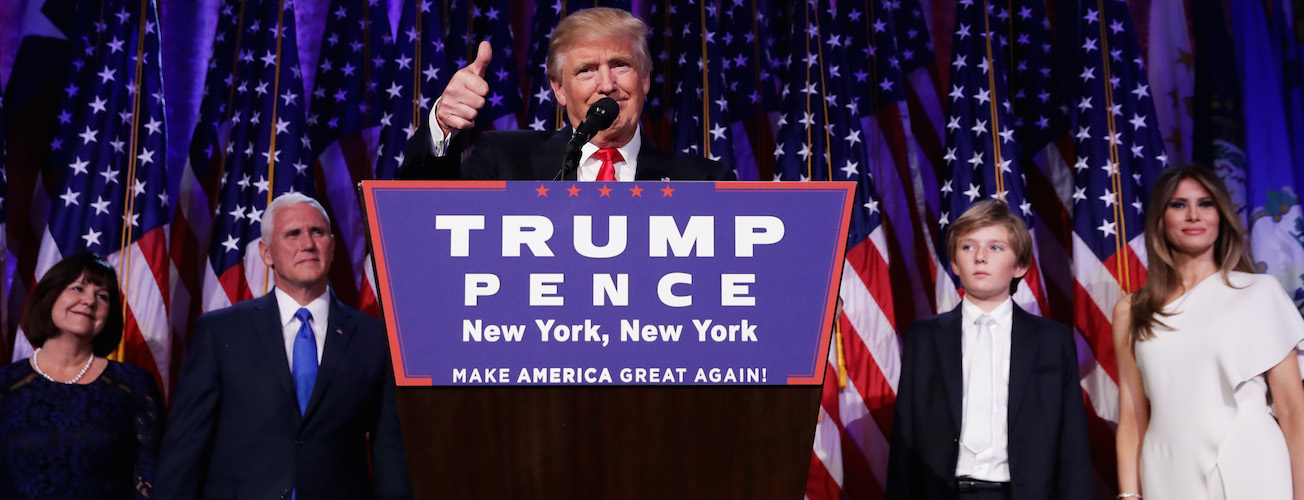Journalism’s moment of reckoning has arrived.
Its inability to understand Donald Trump’s rise over the last year, ending in his victory Tuesday night, clearly stand among journalism’s great failures, certainly in a generation and probably in modern times.
Reporters’ eagerness first to ridicule Trump and his supporters, then dismiss them, and finally to actively lobby and argue for their defeat have led us to a moment when the entire journalistic enterprise needs to be rethought and rebuilt. In terms of bellwether moments, this is our anti-Watergate.
Already the finger-pointing deconstructions have begun. Yes, social media played a role, enclosing reporters in echo chambers that made it hard, if not impossible, for them to hear contrarian voices; yes, the brutal economics of the news business hurt all our efforts, decimating newsrooms around the country and leaving fewer people to grapple with what was a gargantuan story; and yes, reporters can be forgiven, at least initially, for laughing off a candidate whose views and personality seemed so outside the norm of a serious contender for the White House.
While all those things are true, journalism’s fundamental failure in this election, its original sin, is much more basic to who we are and what we are supposed to be. Simply put, it is rooted in a failure of reporting.
We need to embrace, even relish, our legacy as malcontents and troublemakers, people who are willing to say the thing that makes everyone else uncomfortable
As much of the country–indeed, apparently, a majority of the country–was roiling in anger and resentment and racism, too few reporters took the time to seek out people outside major cities on the coasts and listen to them. In this election, as in every election, the voters ultimately were the story that mattered, much more so than the campaign managers or the think-tank talkers or the reporter-cum-commentators with massive Twitter followings.
Too often, the views of Trump’s followers–which is to say, the people who just elected our next president–were dismissed entirely by an establishment media whose worldview is so different, and so counter, to theirs that it became chic to belittle them and wave them off. Reporters’ personal views got in the way of their ability to hear what was happening around them.
Now a new era needs to begin, a period in which reporting takes precedent over opinion, when journalists are willing to seek out and understand people with whom they may have profound personal and philosophical differences. For decades, centuries even, that has been the definition of journalism.
That kind of reporting needs to be accompanied by a return to journalism’s oppositional roots; it has done reporters no good to think of themselves as part of the establishment or a megaphone for the conventional wisdom. We need to embrace, even relish, our legacy as malcontents and troublemakers, people who are willing to say the thing that makes everyone else uncomfortable.
There is so much else to do, and so much to learn from last night, including diversifying our newsrooms so they more accurately reflect the country we’re supposed to be covering; breaking out of the reporting silos of official agencies and spokespeople; and de-emphasizing social media so people can pursue stories that are important and true, but may not result in a flurry of retweets over a 15-minute span.
Over the next two months, Donald Trump will begin preparing for his move into the White House. He already has made clear that he is no friend of the press. He has threatened to sue media outlets he doesn’t like, and is on the record opposing some of the libel-law protections that are critical to the press’ ability to adequately do its job. Our re-invention can’t come soon enough.
Kyle Pope was the editor in chief and publisher of the Columbia Journalism Review. He is now executive director of strategic initiatives at Covering Climate Now.

